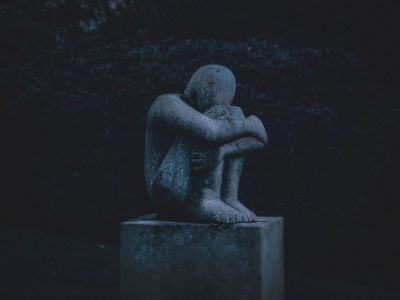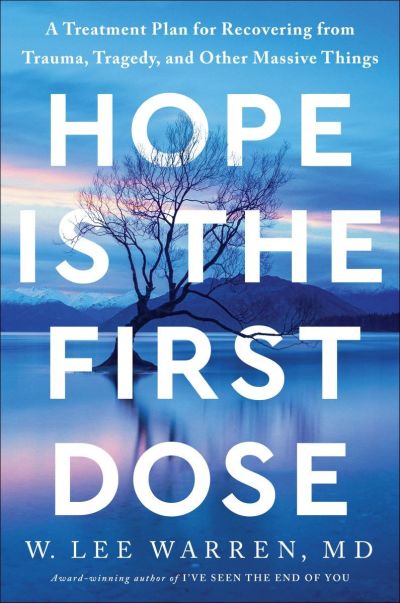Your brain on grief: How to prevent loss from becoming an idol

In September 2013, I performed emergency brain surgery to save the life of a comatose 8-year-old boy who had fallen on the school playground. The fall fractured his skull and led to a hemorrhage that, left untreated, would have compressed his brain further and killed him within the next few hours. The boy woke up after surgery, and eventually made a complete recovery. He went home with his parents a few days later, and I was able to be part of sparing his family from the devastating pain of losing a child.
There is nothing unusual about a neurosurgeon saving a life by removing a blood clot from the brain. Even for me, it is a routine part of my practice. I’ve done it thousands of times, in trauma centers across the country and in a dusty tent hospital during my time as a military surgeon in the Iraq War.
What made it different was that this was the first surgery I had performed since my own son was stabbed to death only a few weeks earlier.
Post-op, I met with the boy’s parents briefly before the medics took him to a nearby children’s hospital for further care. He’d been too sick to transport before surgery, so I had operated on him in our adult trauma center to save him and stabilize him for the short flight. Then my friend the hospital chaplain sat down with me for what turned out to be one of the most important conversations I’ve had in my life.
Since my son Mitch had died, I’d been adrift, and unsure whether I still believed in God, since my personal theology didn’t leave room for a God who could allow such a tragedy in my or my family’s life. This was, of course, stunningly naïve and hypocritical of me. After all, almost every day in my job I see families who are in the midst of similar traumas, tragedies, and other such misfortunes that my wife, Lisa, and I call “The Massive Things,” or TMT’s that seem to beset us all at some point in our lives.
I was stuck, angry, sleepless, and suffering from numerous physical pains like shingles and broken molars from grinding them each night. On top of all the grief and the pain, I missed the familiar comfort of my faith and the sense I’d always had, that everything was going to be okay. I knew that this was not going to be okay.
The almost constant thought in my head — “You will never get over this, Lee” — was joined by the accusing voice of my trauma response (Or is it Satan? How can one tell the difference between devil and diagnosis when under so much strain?) — "What’s wrong with you? Why can’t you handle this? Why are you so weak?"

The chaplain asked me to remember the story from the Old Testament book of Exodus, about when Moses was on the mountain in the scary fire and smoke of God’s presence. Aaron and the people were down in the valley making an idol — a golden calf — they could touch and feel that seemed safer to them.
Then he turned, and in that moment, changed my life forever, when he said, “It’s so easy to turn your grief into an idol, Lee. A lot of people do that with grief and pain. They fix their eyes and their hearts on a casket or a divorce or a diagnosis, they drink or use drugs or do something else to numb the pain, and they spend their lives holding on to the hurt so tightly that it becomes the only thing they have. That’s basically idolatry. It’s making a god out of your circumstances instead of letting God help you process them. That’s a dangerous place to live, Lee.”
I realized in the years following our talk that I’d been doing exactly that — holding on to the pain of losing Mitch so tightly and looking at it so intently that it became over time the biggest reality in my life. And I think in some ways I was more scared of what it would look like to let God help me heal than I was of having my life be consumed by the fire of pain it felt like I was in. And the root of that fear, I finally figured out, was the lie trauma told me that healing would somehow make me lose what was left of Mitch.
In the years since, God has brought healing and a return to hopefulness to Lisa, our family, and me. But he did that by taking this seasoned neurosurgeon deep into an understanding of how my own brain processes trauma, and I believe that can be helpful to you as well.
TMT, trauma, and tragedy will set your brain on fire with harmful neurotransmitters and thought loops that fill your head with a belief that it can never be okay again. The parts of your brain that are overactive in major grief and stress are the same parts (subgenual anterior cingulate cortex, the dorsal attention network, and others) that behave abnormally in depression, PTSD, and other mood and thought disorders. The cingulate cortex acts like a “gear shift” for your thinking and behavior, and when it does not work well, you can be “stuck in neutral,” unable to make decisions or move off a particular thought or behavior. The dorsal attention network (DAN) acts as a sort of aperture on the lens of what your brain focuses on. When you’re hurting, the DAN brings the object of your loss or pain into sharp focus, and you cannot focus on anything else.
This, my friend, is the neuroscience of how grief can seem so massive in our minds. That is the place I got stuck. Pastor Jon, my chaplain friend, said it can almost become an idol when it looms larger than God in our minds.
I found the path forward when I realized I needed to treat myself like I would any patient. The question isn’t, “What’s wrong with you?” but rather, “What happened to you?”
Being kind to yourself about what happened, learning to take those lying trauma thoughts captive (2 Corinthians 10:5), and questioning the lies of trauma rather than the God who wants to help you heal are the ways in which you can re-engage your brain, zoom out to focus on the rest of your life, and begin to make progress on your own healing.
This is how you become “transformed through the renewing of your mind,” (Romans 12:2), and the neuroscience is clear: this is self-brain surgery, and it just might save your life. That’s the treatment plan that saved mine.
And hope is the first dose.
Hope Is the First Dose: A Treatment Plan for Recovering from Trauma, Tragedy, and Other Massive Things is available here.
W. Lee Warren, M.D. is a brain surgeon, inventor, Iraq War veteran, and author of Hope is the First Dose: A Treatment Plan for Recovering from Trauma, Tragedy, and Other Massive Things, I've Seen the End of You: A Neurosurgeon's Look at Faith, Doubt, and the Things We Think We Know. His last book, No Place to Hide, was named to the 2015 U.S. Air Force Chief of Staff's Recommended Reading List. Dr. Warren has appeared on The 700 Club, the CBS Evening News, and his writings have been featured in Guideposts magazine. Dr. Warren practices neurosurgery at Great Plains Health. He plays the guitar and loves to make connections between faith, science, and the realities of life. Dr. Warren lives in Nebraska with his wife, Lisa.



























